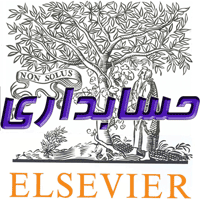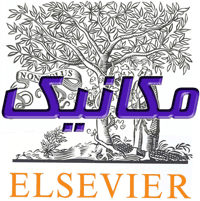دانلود مقاله isi همگرایی استاندارد های حسابداری و سرمایه گذاری مستقیم خارجی
دانلود رایگان مقاله الزویر در مورد همگرایی استاندارد های حسابداری و سرمایه گذاری مستقیم خارجی (کلیک کنید)
توضیحات :
وبسایت مکاله اقدام به ارائه پروژه ی ساینس دایرکت با فرمت pdf، از انتشارات الزویر برای رشته حسابداری، و با عنوان همگرایی استاندارد های حسابداری و سرمایه گذاری مستقیم خارجی، نموده است.
مشخصات این مقاله :
عنوان مقاله :
Convergence of accounting standards and foreign direct investment
ترجمه فارسی عنوان :
همگرایی استاندارد های حسابداری و سرمایه گذاری مستقیم خارجی
سال انتشار : 2014
متعلق به مجله یا ژورنال : مجله بین المللی حسابداری -The International Journal of Accounting
فرمت: PDF
تعداد صفحات: 34
شماره پروژه: 5059
کلمات کلیدی :
IFRS, Foreign direct investment, Accounting harmonization, OECD, Location
IFRS ، سرمایه گذاری مستقیم خارجی، هماهنگ سازی حسابداری، OCED (سازمان همکاری و توسعه) ، مکان
چکیده :
Abstract
Since the development of the eclectic paradigm by Dunning (1977, 1988, 1993), many studies have investigated different forms of location advantages that attract foreign direct investment (FDI). In this study, we consider accounting standards as a component of the institutional infrastructure of a location and hypothesize that the convergence of domestic and International Financial Reporting Standards (IFRS) promotes FDI as it reduces information processing costs for foreign investors.2 We also hypothesize that the effect of reduced information costs is stronger for partner countries whose accounting systems showed greater pre-convergence differences because they magnify the facilitating role of accounting standard convergence for FDI. Using bilateral FDI data from 30 OECD countries between 2000 and 2005, we find evidence generally consistent with these hypotheses.
مقدمه این مقاله :
Introduction
The eclectic paradigm developed by Dunning (1977, 1988, 1993), known as the Ownership-Location-Internalization (OLI) paradigm, provides a framework for understanding foreign direct investment (FDI) activities. Many scholars have since investigated the different forms of location advantages that countries possess and their effects on FDI. These location advantages can include physical infrastructure such as highways and airports (Loree & Guisginer, 1995) or institutional infrastructure such as political stability and rule of law (Globerman & Shapiro, 2003). In his most recent works, Dunning (2005, 2006) emphasizes that the institutional infrastructure should be central to any study of the determinants of international business activities. In this study, we consider accounting standards as a component of the institutional infrastructure and examine whether
similarities in accounting standards between partner countries are conducive to bilateral FDI, and whether convergence to international accounting standards increases FDI traffic.
Discrepancies between national accounting standards and practices have been recognized as important informational barriers to cross-border investment (Ahearne et al., 2004; Pagano et al., 2002). Previous studies have found that foreign investors prefer
markets with high-quality information that enables them to assess investment prospects at a lower cost (Portes & Rey, 2005). Thanks to its verifiability, accounting information has been widely employed as one of the key inputs to reduce information asymmetries in investment decisions. After the European Union’s adoption of IFRS in 2005, the leaders of the G-20 in September 2009 called on “international accounting bodies to redouble their efforts to achieve a single set of high quality, global accounting standards within the context of their independent standard-setting process, and complete their convergence
project by June 2011.”3 As more countries adopt or converge to IFRS, researchers, regulators and users of financial statements have all become increasingly interested in understanding the consequences of using a set of uniform financial reporting standards across countries. The debate concerns even more American academics and professionals these days because the U.S. is the only remaining major economy in the world not yet adopting IFRS.4 Though some have raised the question of the cost of IFRS adoption,5 one of the most frequently cited benefits of switching from local reporting standards to IFRS is that reducing or eliminating differences in accounting standards can allay information processing costs and increase cross-border economic transactions.
توجه :
– این مقاله به صورت کامل و با فرمت پی دی اف آماده خرید اینترنتی و دانلود آنی میباشد.
توضیحات بیشتر در مورد پروژه :
در این مقاله خواهید خواند که توسعه الگوی التقاطی توسط دانینگ ( سال های 1993 ، 1988 ، 1977 ) به واسطه انواع مطالعات متعددی در زمینه مزایای مکانی آن انجام گرفت که سرمایه گذاران مستقیم خارجی را جذب کرده است. با استفاده از اطلاعات FDI دو جانبه از سی کشور عضو سازمان همکاری و توسعه ( OECD ) ، بین سال های 2000 و 2005 می توانیم فرضیه سازگار را پیدا کنیم.
دانلود رایگان مقاله الزویر در مورد همگرایی استاندارد های حسابداری و سرمایه گذاری مستقیم خارجی (کلیک کنید)



